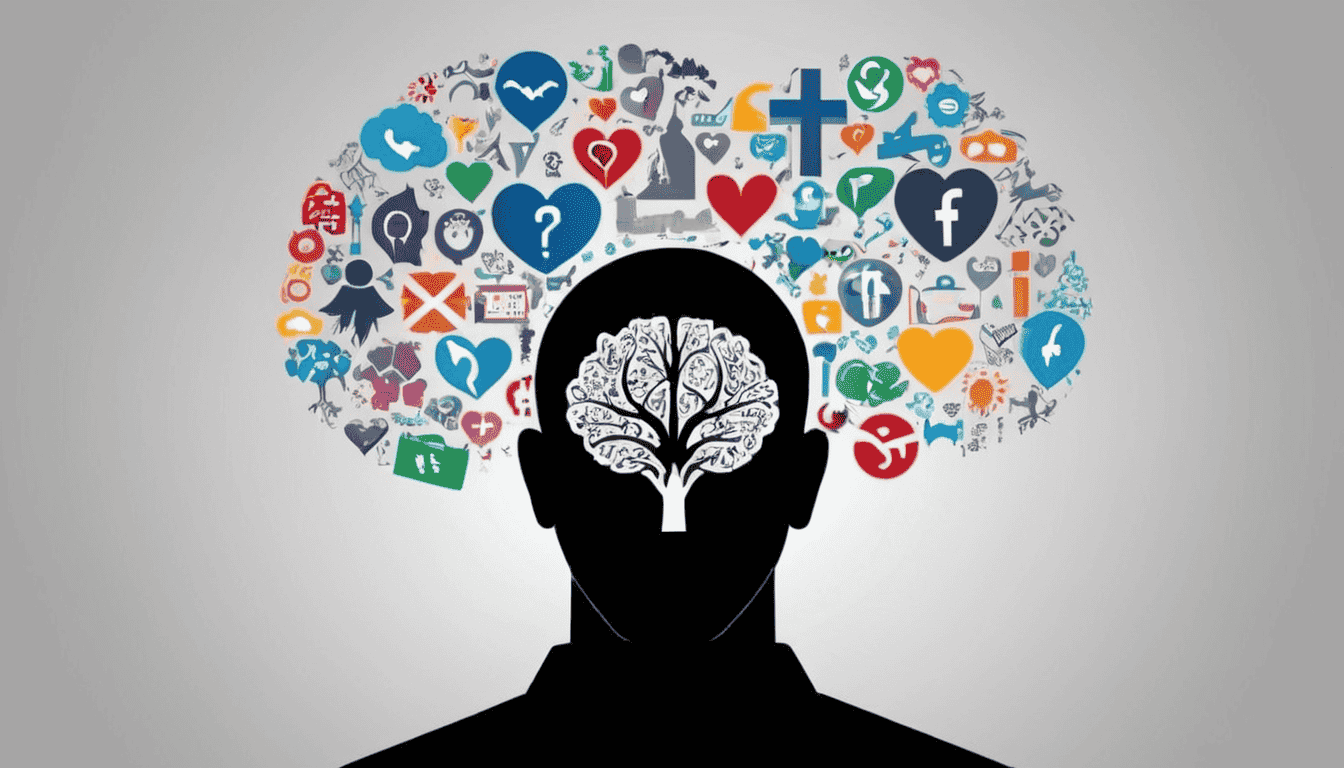Sleep for Health: Optimizing Your Sleep Cycle for Better Days
Emily Willis

Photo: Sleep for Health: Optimizing Your Sleep Cycle for Better Days
Imagine waking up feeling refreshed, energized, and ready to tackle the day. That's the power of a good night's sleep. Sleep isn't just about catching some Zzz's it's a vital biological process that impacts your physical and mental well-being in countless ways. This article dives into the importance of sleep, explores the science behind your sleep cycle, and provides practical tips to optimize your sleep for better, more fulfilling days.
Why is Sleep So Important?
During sleep, your body isn't simply on standby mode. It's a period of intense activity where your body repairs itself, consolidates memories, and regulates hormones. Here are some key reasons why sleep is essential:
- Physical Restoration: Sleep allows your body to repair tissues, strengthen muscles, and boost your immune system. While you sleep, your body produces hormones that promote cell growth and tissue repair.
- Brain Function and Memory: Sleep plays a crucial role in memory consolidation. During sleep, your brain processes and stores information from the day's experiences, forming memories and enhancing learning.
- Emotional Regulation: Sleep deprivation can negatively impact your mood and emotional well-being. Adequate sleep helps regulate hormones like cortisol, which can contribute to feelings of stress and anxiety.
- Improved Concentration and Focus: When you're well-rested, you have better cognitive function, increased focus, and sharper decision-making abilities.
- Reduced Risk of Chronic Diseases: Various studies suggest that chronic sleep deprivation is linked to an increased risk of developing chronic conditions like heart disease, diabetes, and obesity.
Understanding Your Sleep Cycle:
Sleep isn't a uniform state it's a complex series of stages your brain cycles through throughout the night. Here's a breakdown of the four major sleep stages:
- Non-rapid eye movement (NREM) sleep: This stage comprises three progressively deeper levels.
- NREM 1: A light sleep phase where you can be easily awakened.
- NREM 2: A deeper sleep stage where brain activity slows down.
- NREM 3: The deepest sleep stage, essential for physical restoration and tissue repair.
- Rapid eye movement (REM) sleep: This is the stage associated with dreaming. During REM sleep, your brain waves become more active, similar to when you're awake, while your muscles are paralyzed. This is when most vivid dreams occur.
A healthy sleep cycle involves cycling through these stages throughout the night, with NREM sleep taking up about 75% of the total sleep time, and REM sleep making up the remaining 25%.
How Much Sleep Do You Really Need?
Sleep needs vary by age, but here's a general guideline from the National Sleep Foundation:
- Newborns (0-3 months): 14-17 hours per day
- Infants (4-12 months): 12-15 hours per day
- Toddlers (1-2 years): 11-14 hours per day
- Preschoolers (3-5 years): 10-13 hours per day
- School-aged children (6-13 years): 9-11 hours per day
- Teenagers (14-17 years): 8-10 hours per day
- Adults (18-64 years): 7-9 hours per day
- Adults (65 years and older): 7-8 hours per day
These are just estimates, and individual sleep needs can vary. Listen to your body's cues. If you constantly feel tired during the day, you might need more sleep, and if you consistently wake up feeling refreshed before the recommended time, you might be getting enough.
Creating a Sleep Sanctuary: Tips for Better Sleep
Now that you understand the importance of sleep and your sleep cycle, here are some practical tips to optimize your sleep hygiene and create a sleep-supportive environment:
- Establish a Consistent Sleep Schedule: Go to bed and wake up at the same time each day, even on weekends. This helps regulate your body's natural sleep-wake cycle (circadian rhythm).
- Create a Relaxing Bedtime Routine: Wind down before bed with calming activities like taking a warm bath, reading a book, or practicing relaxation techniques like deep breathing or meditation.
- Optimize Your Sleep Environment: Make sure your bedroom is dark, quiet, cool, and clutter-free. Invest in blackout curtains, earplugs, and a comfortable mattress and pillows.
Additional Tips for Better Sleep:
- Avoid Caffeine and Alcohol Before Bed: Caffeine can interfere with sleep, and while alcohol may make you feel drowsy initially, it can disrupt your sleep later in the night.
- Get Regular Exercise: Regular physical activity can improve sleep quality, but avoid strenuous workouts too close to bedtime.
- Manage Stress: Chronic stress can significantly impact sleep. Find healthy ways to manage stress, such as yoga, meditation, or spending time in nature.
- See a Doctor if Sleep Problems Persist: If you've tried these tips and still have trouble sleeping, consult a doctor to rule out any underlying medical conditions that might be affecting your sleep.
Remember, sleep is not a luxury it's a necessity. By prioritizing sleep and implementing these strategies, you can optimize your sleep cycle, improve your overall well-being, and unlock a world of better days.
Latest ✨
View AllDiscover the essential qualities required to become a successful leader, from integrity and empathy to communication and adaptability. Learn how to develop these traits to inspire and motivate your team
Emily Willis
top digital marketing trends for 2024, including the rise of AI, the importance of user experience, video marketing dominance, influencer marketing, privacy and data security, sustainability and ethical marketing, and emerging trends like AR/VR, metaverse marketing, blockchain, and NFTs. Specific strategies are provided for leveraging AI for personalized customer experiences, enhancing user experience for mobile users, creating engaging video content, building authentic influencer partnerships, prioritizing data privacy and security, integrating sustainability and ethical practices.
Emily Willis
Europe is full of rich culture, with ten cities offering enriching cultural experiences. From the romance of Paris to the splendor of Rome and the artistic flair of Barcelona, each city has its own unique charm and heritage.
Emily Willis
Proper nutrition is essential for optimal brain function during exams. Foods rich in complex carbohydrates, lean protein, healthy fats, and hydration can help maintain energy levels and focus. Smart snack options during exams include fresh fruits, vegetables with hummus, trail mix, yogurt with granola, and dark chocolate.
Emily Willis
Business
View All
August 4, 2024
Building a Consistent and Inspiring Personal Brand Through Online PlatformsIn today's digital age, it is important to establish a strong personal brand in order to stand out in a competitive landscape. This can be done by following practical steps such as defining your brand identity, identifying your target audience, creating a compelling online presence, crafting quality content, engaging with your audience, leveraging social media effectively, networking and collaborating, monitoring and adapting, showcasing your authenticity, and seeking professional guidance if needed. Building a personal brand requires dedication, authenticity, and strategic planning, but it can lead to a memorable and influential brand that resonates with others in the digital world.
Emily Willis

August 4, 2024
Strategies for Effective Business Growth in a Competitive Marketimportance of strategic planning, innovation, and understanding market dynamics for businesses to achieve sustainable growth in a competitive market. It covers strategies such as customer focus, innovation, marketing, partnerships, financial management, technology, employee engagement, and sustainability.
Emily Willis

August 5, 2024
Tips for Choosing the Right Investment Product for Your Needsprovides guidance on investing money, starting with understanding financial goals and risk tolerance. It explains different investment options such as stocks, bonds, mutual funds, ETFs, real estate, and retirement accounts, and emphasizes the importance of diversification.
Emily Willis
Economy
View Allimpact of inflation on households and businesses, outlining the causes and consequences of rising prices. It provides strategies for both households and businesses to cope with inflation, such as budgeting, seeking deals, and negotiating with suppliers. The importance of collaboration and communication between governments, businesses, and consumers is emphasized, along with the need for long-term investments in infrastructure, skills development, and sustainable practices.
Read MoreGlobalization has a profound impact on the economies of developing countries, offering both opportunities and challenges. By increasing access to markets, facilitating technology transfer, creating jobs, and promoting cultural exchange, globalization can drive economic growth and development. However, addressing the challenges of economic inequality, loss of domestic industries, environmental impact, and cultural homogenization is essential to ensure sustainable and inclusive growth. By adopting strategic measures and fostering international cooperation, developing countries can maximize the benefits of globalization and build a brighter future
Read MoreThe digital economy has the potential to bring economic growth and innovation to developing countries, but there are several challenges that need to be addressed. These challenges include inadequate digital infrastructure, a digital divide that exacerbates inequalities, complex and outdated regulatory frameworks, cybersecurity risks, and limited access to financial services. However, there are opportunities for enhancing financial inclusion and economic growth. These opportunities include mobile and digital payments, implementing digital identification systems, e-commerce and market access, digital skills development, and public-private partnerships. By addressing these challenges and embracing the digital revolution, developing countries can unlock new opportunities for economic empowerment and inclusive growth.
Read MoreEntertainment
View All
August 5, 2024
Entertainment in Society: Social Impact, Cultural Influence, Economic ContributionsEntertainment is more than just a way to pass the time it has a significant impact on society, culture, and the economy. It promotes empathy, sparks conversations, and drives social change. It reflects and shapes cultural trends, while also preserving traditions. The entertainment industry generates jobs, contributes to economic growth, and drives technological innovation.
Emily Willis

August 4, 2024
Virtual Music Concerts: The Future of Live Performance?The music industry has seen significant changes in recent years, with virtual music concerts becoming a popular trend, especially due to the impact of the COVID-19 pandemic. Technological advancements have made virtual concerts more accessible and cost-effective, while also reducing the environmental impact of live events. However, challenges such as technical issues and the lack of physical presence remain. The future of virtual concerts may involve hybrid models that combine virtual and physical experiences, as well as continued technological innovation to enhance the quality of virtual performances. Building a sense of community and engagement will also be crucial for the success of virtual concerts moving forward.
Emily Willis

August 4, 2024
The Evolution of Streaming Services Such as Netflix, Disney+, Hulu, and the Implications for the Traditional Entertainment IndustryThe rise of streaming services has revolutionized the entertainment industry, offering on-demand access to a vast library of content through internet-connected devices. Platforms like Netflix, Disney+, and Hulu have diversified their content libraries, reshaped consumer behavior, and challenged traditional distribution models. Technological advancements have enhanced streaming experiences, while economic and cultural implications have led to global market expansion and increased investment in original content production. The future of the streaming industry will be shaped by competition, convergence of media and technology, and the need for adaptation to changing consumer preferences. Embracing digital transformation and strategic partnerships will be crucial for stakeholders in navigating the evolving landscape of modern entertainment.
Emily Willis
Health
View Allmaintaining good health and well-being through nutritional choices. A balanced diet, incorporating whole foods, staying hydrated, consuming nutrient-dense foods, managing portion sizes, practicing mindful eating, eating regular meals and snacks, considering supplements, and adopting sustainable eating practices are all highlighted as effective strategies for enhancing overall.
Emily Willis
Preventive healthcare focuses on strategies to prevent disease and maintain well-being, rather than just treating illnesses after they arise. It helps identify risk factors early on, allowing for interventions that can prevent or delay the onset of chronic diseases.
Emily Willis
significance of mental health awareness in today's fast-paced world. It discusses the importance of understanding mental health, breaking down stigma, and promoting positive mental health practices.
Emily Willis
Trending 🔥
View All
1
2
3
4
5
6
7
8
10
Lifestyle


Sports
View AllAugust 5, 2024
Sports for Social Good: Promoting Diversity, Inclusion, and Community Engagement
Read MoreTechnology
View All
August 5, 2024
Top Unity Software Development Trends to Watch in 2024
Explore the top Unity software development trends that will shape the gaming industry in 2024. From AI integration to VR/AR immersion, cross-platform reach, cloud collaboration, and mobile gaming, Unity is revolutionizing gaming experiences. Stay ahead in the dynamic world of game development with these insights.

August 4, 2024
Amidst Economic Uncertainty, Businesses Adapt and Innovate for Survival
The business world can be unpredictable, but companies can thrive by embracing adaptation and innovation. Understanding market trends, economic indicators, and global factors is crucial for charting a successful course.

August 5, 2024
The Future of Blockchain and Its Impact on Society
Blockchain technology, originally developed for cryptocurrencies like Bitcoin, has evolved into a versatile tool with the potential to revolutionize various industries beyond finance. Its decentralized and transparent nature offers solutions to challenges faced by societies worldwide. Blockchain's impact on society is poised to be transformative across multiple domains, including enhanced security, data integrity, decentralization, supply chain transparency, digital identity, and financial inclusion.

August 5, 2024
Oculus Quest 2 vs HTC Vive Pro – Which Should You Choose?
Oculus Quest 2 vs HTC Vive Pro – which VR headset reigns supreme? Dive into this ultimate showdown to discover the strengths and weaknesses of each, and decide which one is worth your investment. From specs and comfort to content and price, we'll help you make an informed choice.



















